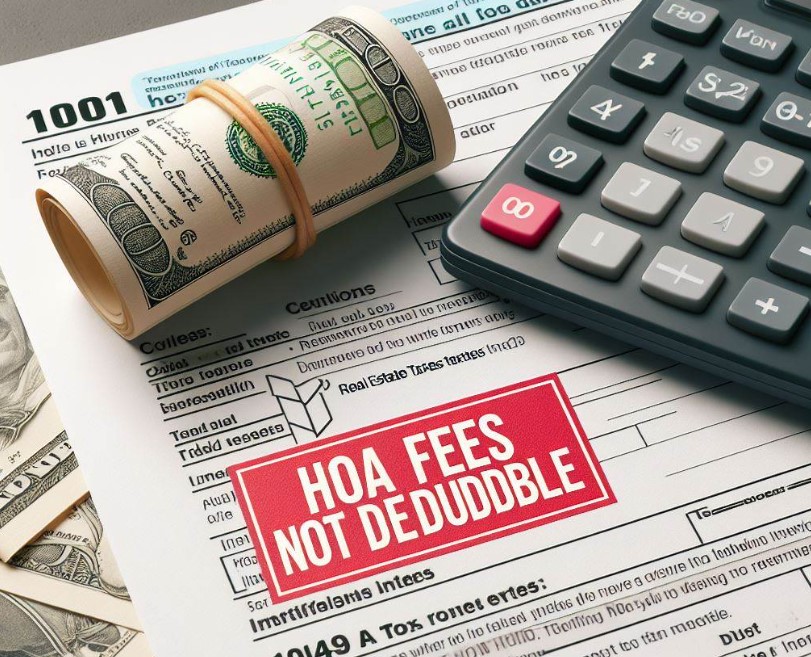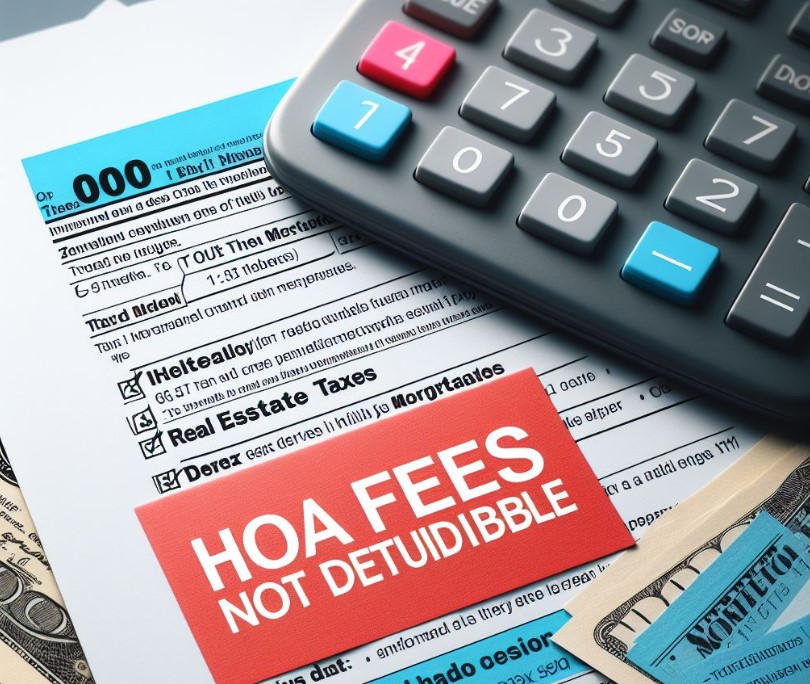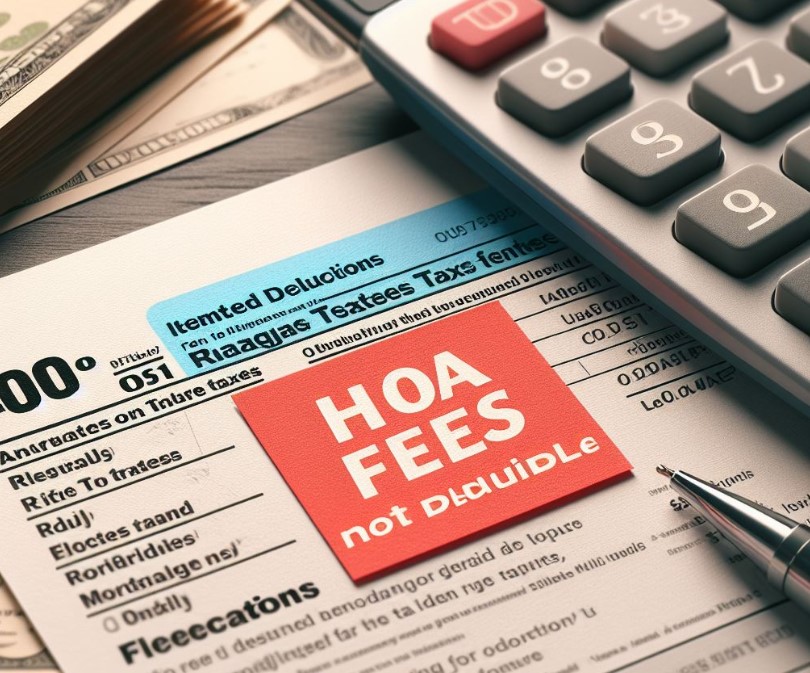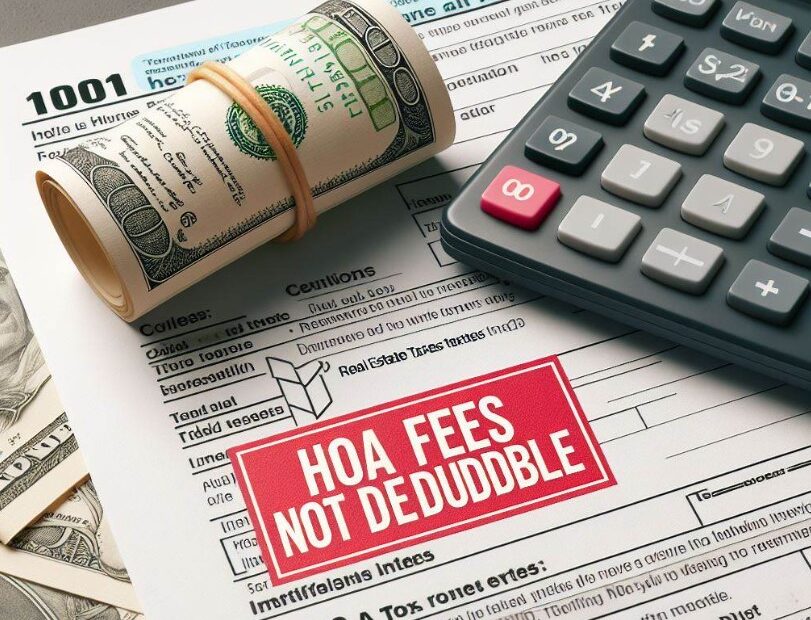This article will explain Are HOA Fees Tax Deductible? Understanding the tax implications of Homeowners Association (HOA) fees is crucial for homeowners. This article delves into the specifics of whether HOA fees are tax-deductible, addressing various scenarios and providing detailed insights.
Key Takeaways
- HOA fees for personal residences generally are not tax deductible.
- Exceptions exist for rental properties and home offices.
- HOA capital improvement assessments may influence the cost basis of your home.
Are HOA Fees Tax Deductible?
In general, HOA fees are not deductible on your federal tax return. This applies primarily to those properties used as personal residences. However, if you use the property for rental purposes or as a home office, the situation may change.

Personal Residence: Non-Deductible
HOA fees for a property that is your primary residence do not qualify for tax deductions. This is because these fees are considered personal expenses, similar to utility bills or home maintenance costs.
Rental Properties: Potentially Deductible
If you own a rental property, HOA fees may be deductible as a rental expense. The full amount of the fees is potentially deductible if the property is rented out throughout the year. However, if the property is rented only part of the year, a proportional deduction of HOA fees is applicable.
Home Office Deduction
For self-employed individuals with a home office, a portion of the HOA fees might be deductible. The deductible amount would typically be proportional to the percentage of the home used for business purposes.
HOA Capital Improvement Assessments
Capital improvement assessments by an HOA can impact the tax treatment of your property. These assessments, unlike regular HOA fees, could affect the cost basis of your home, which has several tax implications. However, these assessments themselves are not directly deductible.
Understanding HOA Fees and Tax Deductions
HOA fees cover expenses like maintenance, trash removal, and other community services. The allocation of these funds is split between ongoing operational costs and reserve funds for less frequent or emergency expenses.

Specifics of Deductibility
- For Personal Use: HOA fees for personal residences are not deductible.
- For Business Use: A portion of HOA fees can be deductible if the property is used for business.
- For Rental Properties: Deductible as rental expenses, either in full or proportionally, based on the duration of the rental period.
Legal Perspectives on HOA Fee Deductibility
The tax treatment of HOA fees is subject to legal and regulatory frameworks. It’s important to consult with tax professionals to understand the specific implications of your situation.
Deductibility for Home Offices
Self-Employed Home Office Deduction
If you are self-employed and use part of your home exclusively and regularly for business, a portion of your HOA fees can be deductible. The deductible amount is based on the percentage of your home used for the office. For example, if your home office occupies 25% of your home, you can deduct 25% of your HOA fees.
Remote Office Considerations
For those using a home office as a remote office for employment, the “convenience of the employer test” must be met. This means the home office should be for the employer’s benefit, and the employer should not compensate for the space’s use. Additionally, spaces like a rented basement or a room used for business purposes can qualify for similar deductions based on their proportion of the home’s total area.
Deductibility for Rental Properties
Full Deduction for Rental Properties
HOA fees for properties used entirely as rental units are fully deductible. This deduction applies for the duration the property is rented out. This is because these fees are considered necessary expenses for maintaining a rental property.
Partial Deduction for Seasonally Rented Properties
For properties used part-time as rentals, HOA fees are only partially deductible. The deductible amount is based on the proportion of time the property is rented. Fees paid during personal use of the property are not deductible.
Capital Improvement Assessments: Non-Deductible, But Affect Cost Basis
While HOA capital improvement assessments are not directly deductible, they can increase the cost basis of your home. This increased basis can lead to lower capital gains taxes when selling the property, although it might result in higher property taxes in the interim.

Special Considerations
Deductions in Case of Property Rentals by Tenants
If you are a tenant paying HOA fees, you can potentially claim these as deductions since they are expenses incurred to maintain the property. However, this is more applicable if the property is used for business or rental purposes.
Limitations for Renters Paying HOA Fees
If your rental agreement passes the responsibility of HOA fee payments to your tenants, then these fees cannot be deducted from your taxes. In such cases, the landlord cannot claim these fees as they are not direct out-of-pocket expenses.
Conclusion
In summary, while HOA fees for personal residences are generally not tax deductible, exceptions exist for rental properties and home office setups. Understanding these nuances is key to effectively managing your tax obligations and benefits. Always consult a tax professional to ensure compliance and optimize your tax strategy.
People Also Ask
What records should I keep for deducting HOA fees?
Maintain detailed records of HOA payments, including invoices and payment receipts. If deducting for a home office or rental property, keep records that show the usage of the property for these purposes, such as a home office layout or rental agreements.
Are there any special circumstances where HOA fees can be deductible for a personal residence?
Generally, no. HOA fees for a personal residence are not deductible. However, if part of the residence is used for business purposes, such as a home office, that portion of the HOA fees may be deductible.
If my tenants pay the HOA fees, can I still deduct them?
No, if your tenants are responsible for paying the HOA fees, you cannot claim these as deductions. The fees must be paid directly by you as the property owner to be deductible.
Can I deduct HOA fees if I am a tenant paying these fees?
If you are a tenant and the property is used for business or rental purposes, you may be able to deduct these fees. However, this is not typically applicable to tenants in a standard residential lease.
A multifaceted professional, Muhammad Daim seamlessly blends his expertise as an accountant at a local agency with his prowess in digital marketing. With a keen eye for financial details and a modern approach to online strategies, Daim offers invaluable financial advice rooted in years of experience. His unique combination of skills positions him at the intersection of traditional finance and the evolving digital landscape, making him a sought-after expert in both domains. Whether it’s navigating the intricacies of financial statements or crafting impactful digital marketing campaigns, Daim’s holistic approach ensures that his clients receive comprehensive solutions tailored to their needs.









